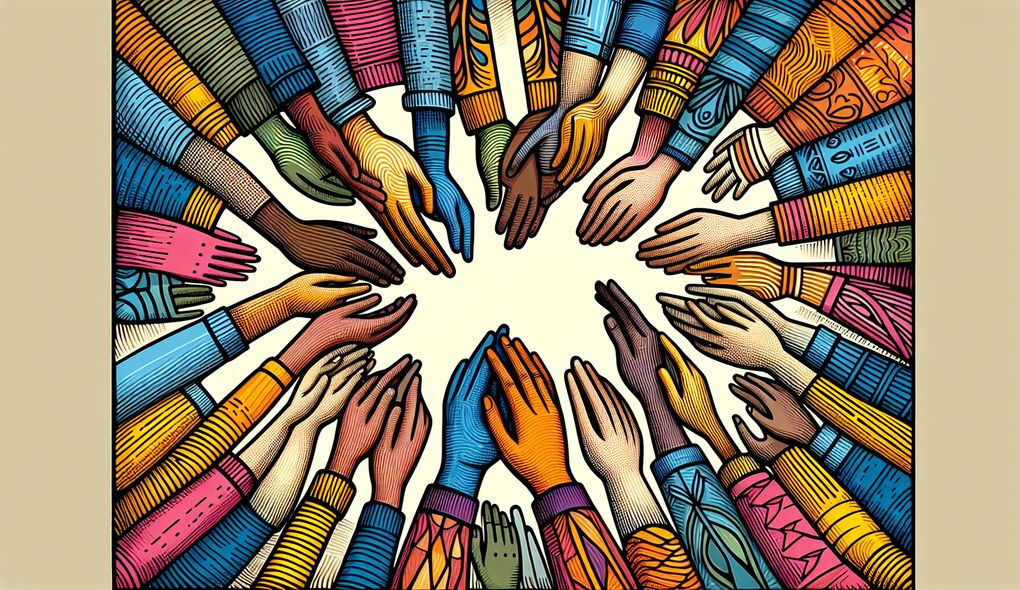What steps do you take to ensure that your work and advocacy is culturally sensitive and inclusive?
SENIOR LEVEL

Sample answer to the question:
To ensure that my work and advocacy are culturally sensitive and inclusive, I take several steps. Firstly, I actively educate myself about different cultures and their unique needs and challenges. I attend workshops, read books, and engage with diverse communities to gain a deeper understanding. Secondly, I practice active listening and empathy when working with survivors. I create a safe space where they feel comfortable sharing their experiences and needs. Thirdly, I collaborate with community organizations and cultural centers to ensure that our programs and services are inclusive and accessible to all. Lastly, I continually reflect on my own biases and assumptions, and constantly work to unlearn and challenge them. This helps me to approach my work with an open mind and avoid inadvertently perpetuating harmful stereotypes or practices.
Here is a more solid answer:
To ensure that my work and advocacy are culturally sensitive and inclusive, I take several concrete steps. Firstly, I actively educate myself about different cultures by attending cultural competency workshops, reading books, and engaging with diverse communities. For example, in my previous role as a Domestic Violence Advocate, I took part in a training program on cultural sensitivity specific to the communities I served. Secondly, I prioritize active listening and empathy when working with survivors. I create a safe and non-judgmental space where they can freely express their needs and experiences. This includes recognizing and respecting cultural practices and beliefs that may influence their decision-making. Thirdly, I collaborate with community organizations, cultural centers, and faith-based institutions to ensure that our services address the unique needs of diverse populations. For instance, I established partnerships with local community centers to provide culturally-appropriate counseling services for survivors from different backgrounds. Lastly, I engage in regular self-reflection and self-awareness practices to identify and challenge any biases or assumptions I may hold. This helps me approach my work with an open mind and ensures I do not perpetuate harmful stereotypes or practices.
Why is this a more solid answer?
The solid answer provides specific details and examples to support the steps the candidate takes to ensure cultural sensitivity and inclusivity in their work. It demonstrates their experience and knowledge in the field by mentioning their previous role as a Domestic Violence Advocate and the specific training program they attended. Additionally, the mention of establishing partnerships with community centers showcases their collaboration skills. However, the answer could still be improved by including more examples of how the candidate has implemented cultural sensitivity and inclusivity in their previous work.
An example of a exceptional answer:
Ensuring cultural sensitivity and inclusivity in my work and advocacy is of utmost importance to me. To achieve this, I follow a comprehensive approach. Firstly, I actively seek continuous education in cultural competency through various channels, such as attending conferences, taking online courses, and participating in community dialogue sessions. For example, I recently completed a course on intercultural communication, which enhanced my understanding of cultural nuances and the impact they can have on survivors' experiences seeking help. Secondly, I strive to create an inclusive environment for survivors by regularly assessing their needs and preferences, and actively involving them in decision-making processes. For instance, I have implemented a feedback mechanism to gather input from survivors from different cultural backgrounds regarding the accessibility and effectiveness of our services. This has helped us identify areas for improvement and adapt our approaches accordingly. Additionally, I organize cultural awareness workshops for staff and volunteers to increase their understanding of cultural diversity and its implications on survivor support. Thirdly, to ensure accessibility and relevance, I collaborate with community leaders and organizations to develop tailored interventions for specific cultural communities. By engaging in open dialogue and proactive engagement with these groups, I have been able to identify and address unique challenges faced by survivors within these communities. Lastly, I regularly engage in reflective practices to recognize and challenge my own biases and stereotypes. This involves seeking feedback from colleagues and clients, as well as participating in supervision and professional development activities.
Why is this an exceptional answer?
The exceptional answer goes above and beyond by providing a comprehensive approach and addressing all evaluation areas in detail. The candidate demonstrates their commitment to continuous education by mentioning their recent completion of a course on intercultural communication. They also highlight their proactive involvement of survivors in decision-making and feedback mechanisms, showcasing their empathy and inclusivity skills. Additionally, the mention of organizing cultural awareness workshops and collaborating with community leaders displays their strong advocacy and collaboration abilities. The answer also emphasizes the candidate's commitment to self-reflection and personal growth. Overall, the exceptional answer provides specific examples and demonstrates a deep understanding of cultural sensitivity and inclusivity in the context of their work.
How to prepare for this question:
- Familiarize yourself with the concept of cultural sensitivity and its importance in the field of domestic violence advocacy.
- Stay updated on current research, best practices, and legal frameworks related to cultural sensitivity and inclusivity in victim advocacy.
- Attend workshops, conferences, and training programs on cultural competency and intercultural communication.
- Engage with diverse communities to gain a deeper understanding of their unique needs and challenges.
- Reflect on your own biases and assumptions and actively work to challenge and unlearn them.
- Highlight any previous experience or training you have in cultural sensitivity and inclusivity in your resume and cover letter.
What are interviewers evaluating with this question?
- Cultural sensitivity
- Inclusivity
- Empathy
- Collaboration
- Self-reflection

